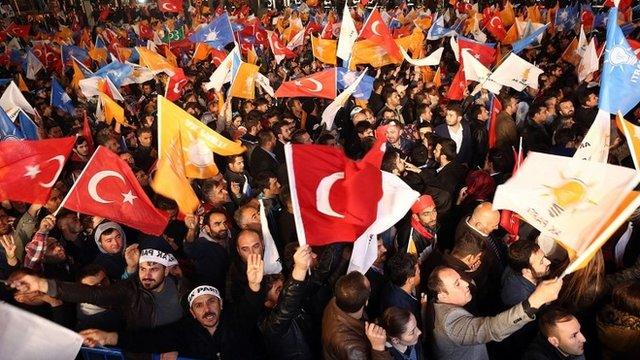EU criticises Turkey over human rights and democracy
- Published
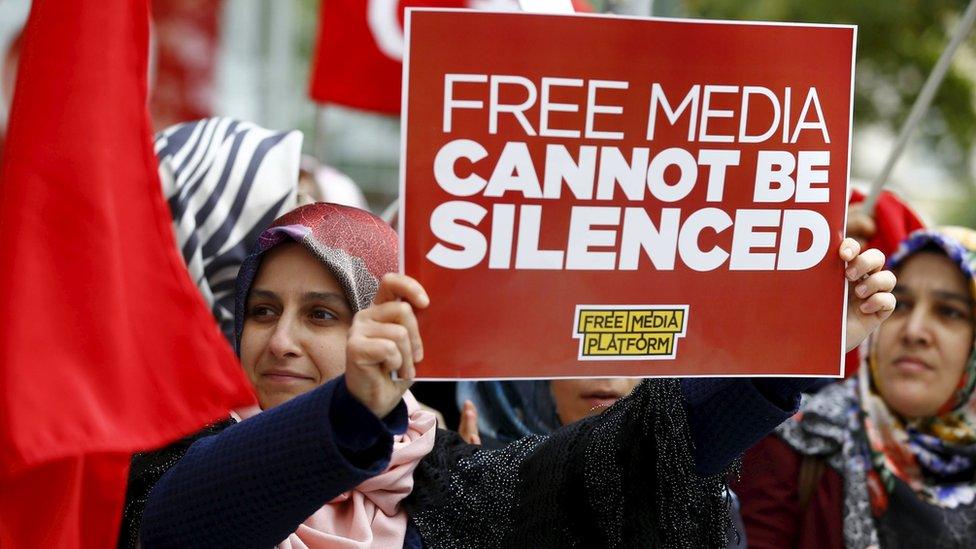
The European Commission says criminal cases against journalists have curtailed media freedom
The European Commission has called on Turkey urgently to address significant failings on human rights and democracy.
A delayed annual report, external on Turkish prospects for EU membership says there have been serious setbacks in the past two years on freedom of expression.
It also says the independence of the judiciary had been undermined and that new laws run against EU standards.
The report's publication comes at a time when the EU needs Turkey's help in trying to control the refugee crisis.
It also follows parliamentary elections in which President Recep Tayyip Erdogan's Justice and Development Party (AKP) regained the majority it lost in June.
Responding to the report, Turkey's ministry for EU affairs called the comments "unfair and excessive", adding that they do not "duly reflect Turkey's reforms in these fields".
"Such comments overlook the balance between freedom and security which is a must for democracies where rules of law prevails," it added.
President Erdogan has stressed his support for a constitution centred on a strong presidency - something he says will be achieved in the next four years.
The report had been pushed back by several weeks because sensitive negotiations on the refugee crisis were taking place with leading Turkish officials, including the president, shortly before the 1 November elections.
'Serious backsliding'
The BBC's Chris Morris in Brussels says the Commission's report seems to pull few punches.
Although Mr Erdogan himself is not named in the report's key findings, there are fairly direct criticisms of Turkey's powerful president, our correspondent reports.
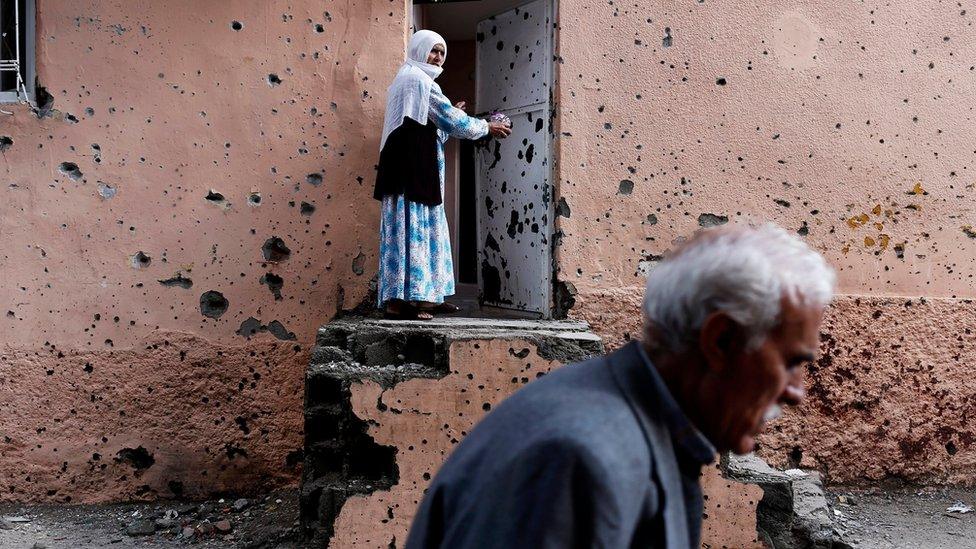
Hundreds have been killed since July in fighting between Turkish troops and PKK rebels
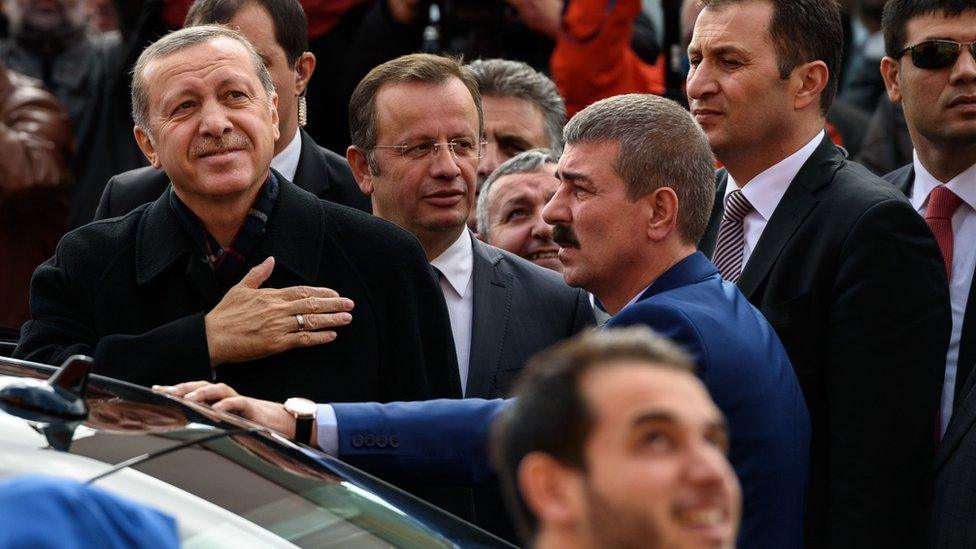
The report was held back until after Turkey's elections, which Recep Tayyip Erdogan's AKP won
After several years of progress on freedom of expression, the report warns of "serious backsliding" over the past two years.
"Ongoing and new criminal cases against journalists, writers or social media users, intimidation of journalists and media outlets as well as the authorities' actions curtailing freedom of media are of considerable concern," it says.
Changes to Turkey's internet law, allowing the authorities to block websites without a court order, were a significant step back from European standards, it adds.
The report says there has also been a severe deterioration of its security situation and that it is imperative that peace talks resume with the rebel Kurdistan Workers' Party (PKK), designated a terrorist group by the Turkish government and the EU.
Hundreds have been killed in fighting between Turkish security forces and PKK fighters in the country's east and south-east since a ceasefire collapsed in July.
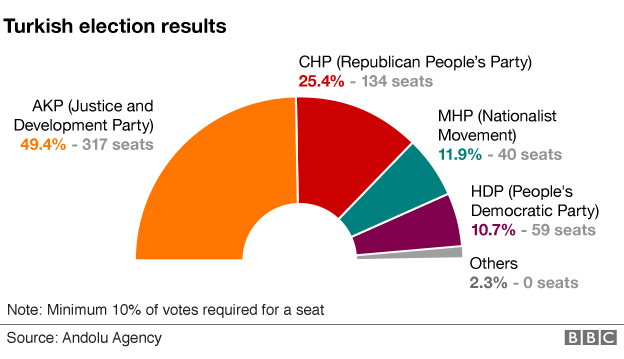
Since the election, Mr Erdogan has pushed forward with plans to "liquidate" the PKK and to hold a referendum on a new constitution with increased presidential powers.
However, the AKP, with 317 seats in the 550-seat parliament is short of the 330 seats needed to hold a referendum.
'Deep state'
The European Commission warns that the escalation in violence has given rise serious concerns over human rights violations, and that anti-terrorism measures taken in that context need to be proportionate.
It also says that the independence of the judiciary and the principle of separation of powers have been undermined since 2014, with judges and prosecutors placed under strong political pressure. The government's active pursuit of shadowy forces known as "deep state" is highlighted.
The influence by the executive in the investigation and prosecution of high-profile corruption cases continues to constitute a major concern for the Commission, which considers Turkey's track record inadequate in the fight against corruption.
Turkey applied for EU membership in 1987 and accession negotiations began in 2005, but only one of the 33 "negotiation chapters" has since been completed.
- Published2 November 2015
- Published24 March
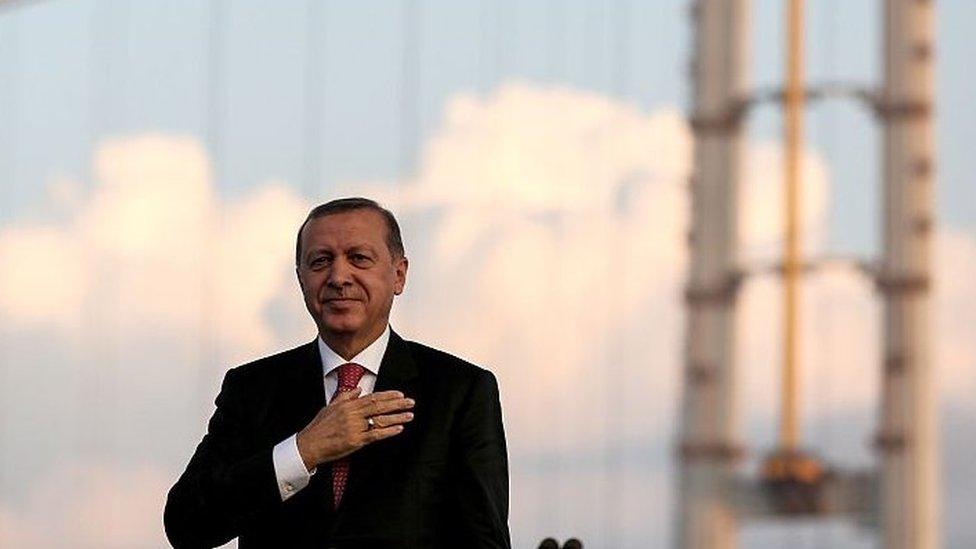
- Published1 November 2015
